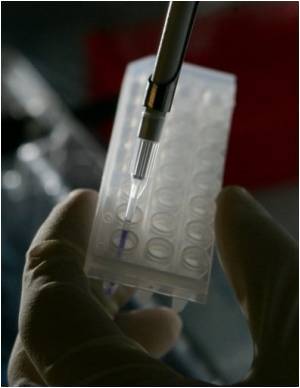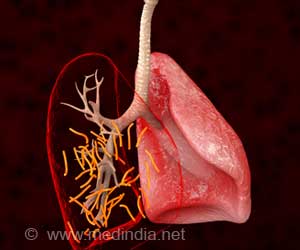Indiana University scientists have identified a lung protein that is suspected to play a key role in smoking-related emphysema and have crafted an antibody to block its activity

When the researchers induced emphysema in mice exposed to cigarette smoke, tests showed the mice had elevated levels of the EMAPII cytokine. In other tests, the scientists also found elevated levels of the cytokine in the lungs of patients with COPD.
The researchers also found that the cell death caused by the EMAPII resulted in the release of enzymes that cause more production of EMAPII, causing a vicious cycle of elevated cytokine levels and more cell death.
Members of the research team, led by first author Matthias Clauss, IU associate research professor of cellular and integrative physiology, created an antibody designed to specifically target EMAPII and block its activity. The mice received an inhaled version of the antibody during their third month of smoking. They then were exposed to a fourth month of smoking without the treatment.
The mice receiving the treatment had significantly less cell death and inflammation and improved lung function compared to the smoking mice who did not receive the treatment. Moreover the benefits to the treated mice continued even after the treatment stopped.
The research will be published in The Journal of Clinical Investigation.
Advertisement















